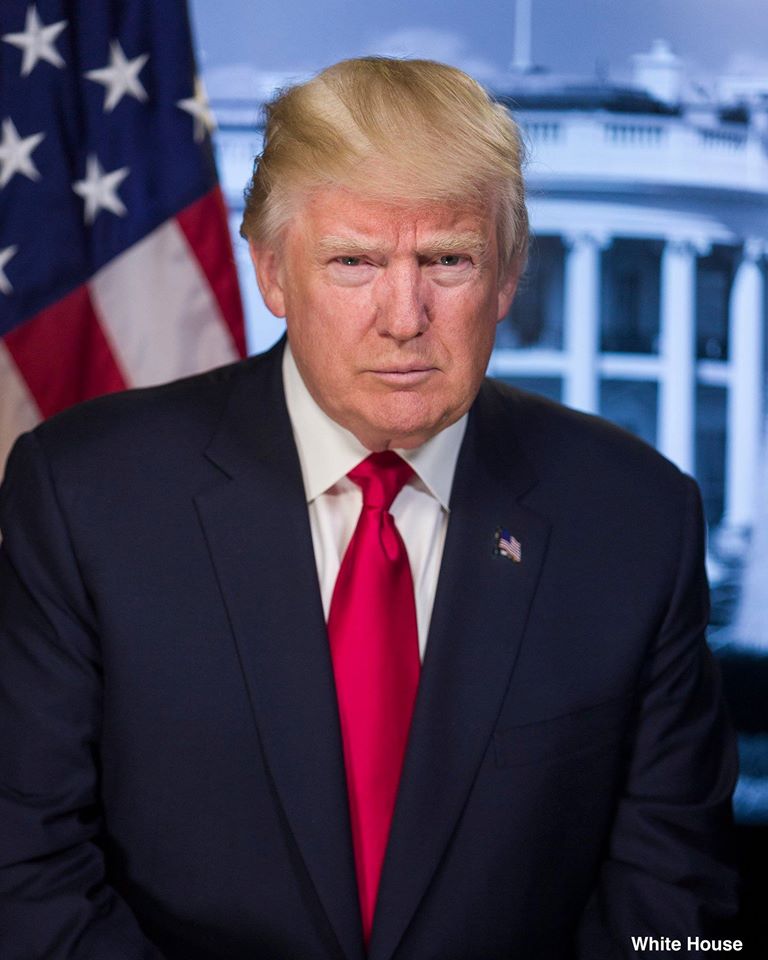Unveiling The President In 2017: A Political Journey
The year 2017 marked a significant turning point in the political landscape of the United States, characterized by a whirlwind of events that shaped the nation’s future. As Donald J. Trump took office as the 45th President of the United States, he ushered in a new era of politics that was both controversial and transformative. His presidency was not only a focal point for national debates but also influenced global dynamics in various ways. The political climate during this time was charged with excitement, skepticism, and a sense of unpredictability.
Throughout 2017, various policies were proposed and implemented, while several key events unfolded that would have lasting ramifications. The administration's approach to issues such as immigration, healthcare, and international relations stirred passionate discussions among both supporters and critics. The media coverage during this time was intense, with every action and statement scrutinized, making it a year of heightened political awareness among the American populace.
As we delve deeper into the presidency of Donald Trump in 2017, we will explore the major events, policies, and controversies that defined his first year in office. This article aims to provide an insightful overview of the challenges faced and the milestones achieved during this pivotal year in American politics.
Who Was the President in 2017?
In 2017, the President of the United States was Donald J. Trump. Elected in November 2016, he was inaugurated on January 20, 2017. Trump, a businessman and television personality, came to office with a promise to "Make America Great Again." His presidency was marked by a distinct departure from traditional political norms, leading to both fervent support and vehement opposition.
What Were the Key Policies Implemented by Trump in 2017?
During his first year in office, President Trump implemented several significant policies that sparked widespread discussion. Some of the key initiatives included:
- **Travel Ban:** An executive order that restricted entry from several predominantly Muslim countries.
- **Tax Cuts and Jobs Act:** Legislation aimed at reducing taxes for individuals and businesses.
- **Deregulation:** Efforts to reduce the number of federal regulations affecting various industries.
- **Healthcare Reform:** Attempts to repeal and replace the Affordable Care Act (Obamacare).
How Did Trump's Presidency Impact International Relations?
Trump's approach to foreign policy was notably different from that of his predecessors. His administration focused on an "America First" strategy, which often led to strained relationships with traditional allies. Key aspects included:
- **Withdrawal from the Paris Climate Agreement:** A significant move that drew widespread criticism.
- **Tensions with North Korea:** Heightened rhetoric and military posturing in response to nuclear threats.
- **Re-evaluation of NATO commitments:** Questioning the financial contributions of member nations.
What Were the Major Controversies Surrounding Trump in 2017?
Trump's presidency in 2017 was not without controversy. Several incidents and actions sparked national debate, including:
- **Charlottesville Incident:** The violent clash between white supremacists and counter-protesters raised questions about Trump's response.
- **Russian Interference Allegations:** Ongoing investigations into potential collusion between Trump's campaign and Russia.
- **Use of Social Media:** Trump's frequent use of Twitter led to debates about presidential decorum and communication.
What Were the Public's Reactions to Trump's Presidency in 2017?
The public response to Trump's presidency was polarized. Supporters praised his direct approach and commitment to fulfilling campaign promises, while critics expressed concern over his policies and behavior. This dichotomy was evident in:
- **Protests:** Nationwide demonstrations, including the Women's March in January, highlighted dissent against his policies.
- **Approval Ratings:** Trump's approval ratings fluctuated throughout the year, often reflecting the divisiveness of his actions.
How Did the Political Climate Change During Trump's First Year?
The political climate in the United States underwent a transformation during 2017. The emergence of grassroots movements, increased political engagement, and a shift in media dynamics all contributed to a more politically aware populace. Key aspects included:
- **Rise of Activism:** More citizens became involved in political activism, driven by opposition to Trump's policies.
- **Media Scrutiny:** The role of media evolved, with increased focus on fact-checking and accountability.
What Were the Achievements of Trump's Administration in 2017?
Despite the controversies, Trump's administration also achieved several significant milestones in 2017. Among these were:
- **Economic Growth:** The stock market experienced substantial gains during his first year.
- **Judicial Appointments:** Trump appointed a significant number of federal judges, including Neil Gorsuch to the Supreme Court.
- **Strengthening Military:** Proposed increases in defense spending and a focus on rebuilding the military.
What Legacy Did Trump Leave After His First Year as President?
The legacy of Trump’s presidency in 2017 continues to be a subject of debate. Supporters argue that his policies laid the groundwork for economic growth and a stronger national security stance, while critics contend that his divisive rhetoric and controversial policies undermined democratic norms. The long-term impact of his first year in office remains to be seen, but it undoubtedly reshaped the political landscape for years to come.
Conclusion: How Will History Remember the President in 2017?
As we reflect on the presidency of Donald Trump in 2017, it is clear that this year was pivotal in shaping the future of American politics. From policy decisions to social movements, the effects of his administration will resonate for generations. The complexities and controversies of this time will continue to be analyzed and debated, establishing a unique chapter in the history of the United States.
In summary, the presidency in 2017 was defined by bold actions, fierce opposition, and a fundamental shift in the political discourse of the nation. How this period is viewed in hindsight will depend on the evolving perspectives of historians, political analysts, and the American public.
Article Recommendations
- Short Positive Quotes About Life Challenges
- Rodney Alcala On Dating Game Video
- Germania Insurance Amphitheater


